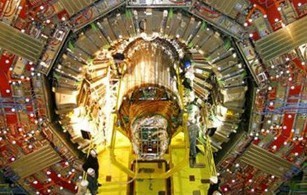Power Conversion Specialist Converteam has successfully completed static testing of essential elements of its Hydrogenie generator
Hydrogenie, thought to be the world’s first high temperature superconducting (HTS) hydro generator for a commercial installation is being manufactured by Converteam as part of a European Union (EU) part-funded project and will be installed at the Hirschaid run-of-river hydroelectric power plant in Bavaria, Germany, which is owned and operated by E.ON Wasserkraft GmbH.
This new breed of generator makes use of high temperature superconducting (HTS) materials instead of traditional materials such as copper. Hydrogenie promises a step change in generator efficiency together with size and weight reductions of up to 70 per cent when compared to a conventional solution. As a result of this technology run-of-river and other hydro power plants are seen as an increasingly viable source of clean, green power as well as it being transferable to the wind power industry.

Critical temperature
In superconducting materials electrical resistance drops suddenly to zero when the conductor is cooled at or below its critical temperature, whereas conventional materials (such as copper) although they exhibit a gradual decrease in resistance, always retain some of their resistive qualities.
The critical temperature at which superconducting qualities are exhibited is a key factor in the evolution of Hydrogenie as a commercially viable generator. The earliest observations of superconductors (i.e. mercury) required cooling to 4K (-269ºC) whereas today’s commercially available superconductors can, depending on the application, operate in relatively balmy temperatures in excess of 50K, hence giving rise to the term ‘high temperature superconductor’.
Derek Grieve, Director Technology at Converteam commented on the successful tests “The recent critical milestone in the testing of HYDROGENIE was the successful passing of current (in this case 70A) through the rotor coils when they were cooled to below the superconducting transition temperature. This was achieved with only half the defined cooling power applied to the coils, and confirms the thermal and electrical design of the coils, cooling and insulation systems. HYDROGENIE looks set to change the fundamental economics of the renewable energy industry with generator efficiency reaching up to 99 per cent.”





